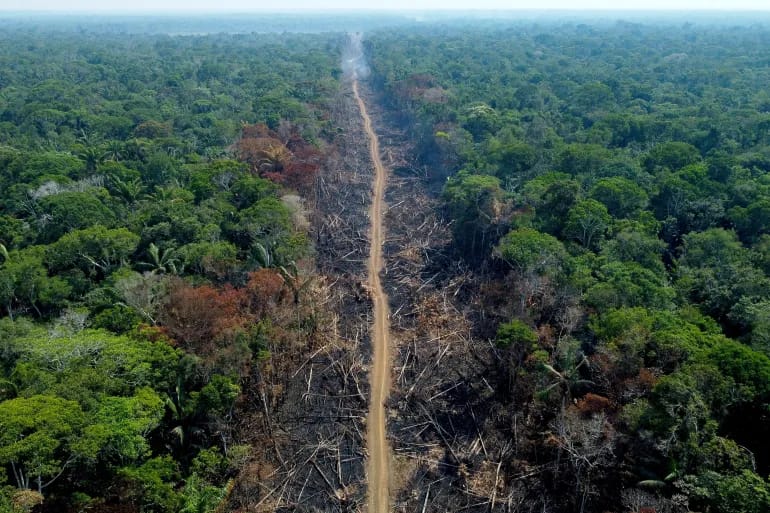World leaders from eight Amazon rainforest nations are convening in Brazil this week to address the pressing challenges posed by deforestation and environmental threats to the critical ecosystem. The Amazon, a colossal rainforest spanning eight countries and one territory, has been battling rampant deforestation and increasing threats for years. The leaders’ summit, organized by the Amazon Cooperation Treaty Organization (ACTO), will seek to establish a common policy to safeguard the rainforest’s future. Hosted in the northern Brazilian city of Belem, this summit marks a significant step towards realizing the promise of President Luiz Inacio Lula da Silva to halt Amazon deforestation by 2030, following years of unchecked development under his predecessor.
Crucial Carbon Sink at Risk: Amazon’s Role in Climate Crisis
The Amazon, twice the size of India, plays a pivotal role as a carbon sink, absorbing carbon dioxide emissions responsible for the climate crisis. Deforestation, however, threatens to reverse this function, unleashing more greenhouse gases into the atmosphere and destabilizing global weather patterns. Atmospheric chemist Luciana Gatti warns that deforestation accelerates climate change, leading to reduced rainfall and higher temperatures. Recent studies reveal that the eastern Amazon, heavily deforested, has shifted from absorbing carbon to emitting it. Half of the deforestation in this region must be reversed to maintain the rainforest as a buffer against climate change.
Tackling Threats Head-On: Strategies and Challenges Discussed
Deforestation, primarily driven by economic development, cattle ranching, and soybean farming, poses the most significant threat to the Amazon. The Brazilian state of Para exemplifies this devastation, contributing the highest share of deforestation and greenhouse gas emissions. Beyond deforestation, the Amazon faces challenges from large hydroelectric dams, illegal logging, mining, and oil drilling, which disrupt Indigenous communities and contaminate water sources. The summit aims to address these challenges comprehensively, discussing strategies to combat deforestation, organized crime, and promote sustainable development. Additionally, a scientific body akin to the United Nations Intergovernmental Panel on Climate Change may be established to share research and monitor climate change impacts.
Global Urgency: Environmental Groups Rally for Immediate Action
Leading up to the summit, over 50 environmental groups have called for urgent action to prevent the Amazon from reaching a tipping point of no return. The Climate Observatory petition emphasizes the need for zero illegal deforestation by 2030, strengthened Indigenous rights, and effective measures against environmental crimes. The WWF-Brazil urges summit participants to devise a robust action plan that curbs deforestation, illegal gold mining, and conserves a substantial portion of the Amazon. Environmental organizations stress the global implications of inaction, as the Amazon’s survival is crucial not only for the millions of lives it sustains but also for the broader health of the South American continent.
In a world grappling with the dire consequences of climate change, the Amazon Summit in Brazil stands as a beacon of hope and collective responsibility. As leaders gather to confront the imminent threats posed by deforestation and environmental degradation, the world watches intently, hoping for a resolute commitment to safeguarding this invaluable rainforest. The outcomes of this summit could reverberate far beyond its geographical confines, shaping the trajectory of environmental policies worldwide. With the world’s eyes on the leaders, expectations run high, and the Amazon’s fate hangs in the balance.
















